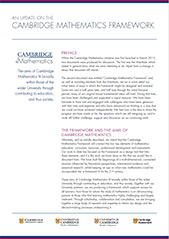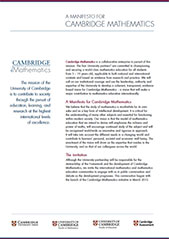
Cambridge Mathematics newsletter
Join our newsletter list and receive updates, blogs and maths education news stories straight to your inbox
Sign up
The Cambridge Mathematics Framework

View a PDF
The Cambridge Mathematics Manifesto

View a PDF of the Manifesto